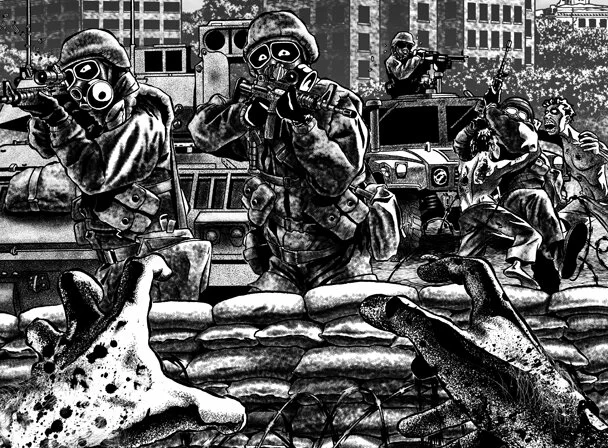 I guess it comes as no surprise that most of the high level government positions in the United States are held by the rich, white, and old. This contrasts against the increasingly diverse America, proven by the current illegal immigration debate, and the unprecedented African American president.
I guess it comes as no surprise that most of the high level government positions in the United States are held by the rich, white, and old. This contrasts against the increasingly diverse America, proven by the current illegal immigration debate, and the unprecedented African American president.Seeing that America is starting to come to terms with its own unique diversity, it's become more and more clear that an identity crisis has taken hold over the nation. An American societal reformation, so to speak. This manifests in different ways, from the race clashes in local city governments, to the bipartisan bickering of the Senate.
So every year, when elections roll around, I don't find it surprising that my own immigrant parents hate to look at the ballots.
Perhaps they've never been the political kind, or that they just don't care to read through the thick wad of papers explaining all the propositions and candidates' positions. And yet, I hear them complain daily at the dinner table about how the American government is ineffective, filled with liars and hypocrites.
So when I think about their contradictions, it's not just another case of where your parents go against their word. I can't quite pinpoint it.
Maybe they just don't want to vote because none of the candidates represent their ethnicity. Maybe their origin country has instilled a subconscious die hard hate of American democracy. It's probably a reason I'll never understand in my lifetime.
So when the annoying white ballots arrive in the mail, it's just another reminder of much my parents are passive about American politics. They heap it on their desk, letting it waste away in time. Of course, it soon becomes a chore of marking the lines, voting for some random candidate that's vaguely familiar due to them being the current incumbents, or because their names have popped up in some sponsored commercial that comes on during primetime.
I've seen them too, having an inkling of what these candidates represent, what political party they are a part off, and what they plan to do in office. No matter who or how someone gets elected, I try not to leap at a sense of false hope. I've become used to being disappointed by big shot political types that rarely gets anything lasting done. I follow politics pretty closely, and if I haven't heard of their achievements, they don't exist.
And maybe that's the reason my parents have so little faith in themselves and in the democratic system when they stare at the ballots on their desk, black pen in hand. They do it because they know they'll be disappointed by whoever comes on. They know nothing will change, and that their vote matters little.
And when I try to get them intrested in the issues, I can see the weariness in their eyes. I see the same old look that appears on the face of the booth people who sell tickets at a theater. I even feel a bit of pity for them.
Have I overemphasized how much my parents don't want to fill in ballots? Want to guess how these ballots are magically filled?
It comes as an unbelievable statement to people when I tell them that I vote in the elections. I'm obviously underage, making it an illegal and laughable endeavor. Then again, I'm not talking about high school elections. I'm taking about the real deal federal ones, the things your parents get in the mail.
So if somebody should ever ask whether I do the voting for my parents, I'll never tell.
Because I find that prospect laughable.







